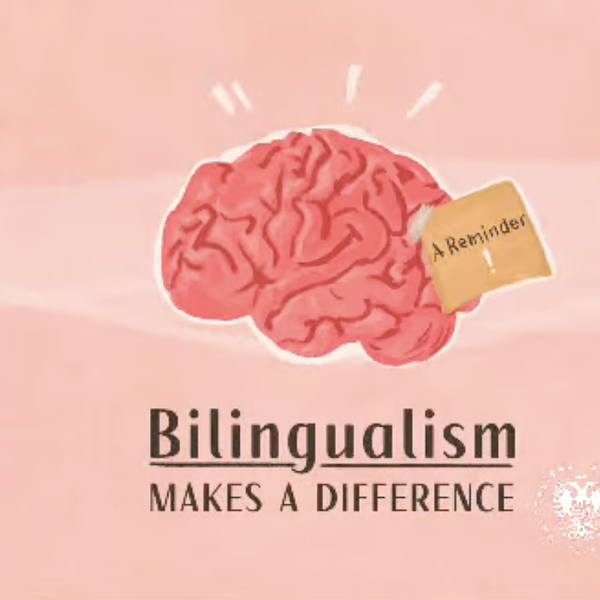
2021-02-24
In her monologue, Cristina López-Rojas explains how bilingualism makes a difference.
This week, Cristina López-Rojas, PhD candidate in Psychology at the University of Granada and a member of our Bilingualism Matters branch, participated in the Three Minute Thesis competition. Cristina came out ahead in the competition at the local level in the Doctoral School of Psychology, and was one of 20 semifinalists in the following round at the university level.
Watch her 3 minute monologue about bilingualism and memory titled, “A reminder: Bilingualism makes a difference.” Dr. Francisco Contreras Cortés introduces her at the 52.25 timestamp and her presentation starts at the 53.33 timestamp.
https://www.youtube.com/watch?v=OkMLSTs9d7U&ab_channel=UGRmedia#t=53m33s

Presentation transcript:
Have you ever forgotten to congratulate your friend on her birthday? Or maybe to take your medication at the proper time? Or to keep and appointment?
I’m sure that all of you have forgotten things like these. However, luckily, this doesn’t always occur. People have the ability to create “mental post-it notes” that allow them to remember actions to do in the future. The difficulty of this kind of recall is that we must pay attention to the context and realize when it’s the correct time to perform the intention. For example, imagine that you are working, and you get a message from your mother asking you to buy bread before dinner. As a consequence, in your “mental post-it notes” you write “buy bread!”. So, on your way home you must pay attention to the environment to spot the bakery and perform your intention: buy bread.
Well, you may be wondering what you could do to help you remember to do something. I have the answer: bilingualism. In my PhD, I investigate how bilingualism could modulate the recall of future intentions.
Curiously, bilingual people also pay attention to the environment to be aware of what language they should use. To give an example, my friend Megan lives in southern California and she’s of Latin and Asian origins. She’s an expert at choosing the right language in each situation: when she’s with her mother, she speaks Spanish; when she’s with her father, she speaks Japanese; but, when everyone is having lunch together it’s time to speak English.
In a world where most people are bilingual, my thesis is the first research focused on how this population recalls intentions compared with those that only speak one language and aren’t trained to observe the environment. In order to do this, we assessed bilinguals and monolinguals in intention recall tasks. Most importantly, during the tasks, we recorded brain activity to explore what happened’s.
Surprisingly, our results show that bilinguals were slower at recalling their intentions. However, when we looked at the brain activity pattern, we found that this is due to better efficiency at paying attention to the context compared with their monolingual peers. This greater efficiency is reflected in greater brain activation, a sign of the adaptability of the bilingual brain to the environment requirements and to avoid distractions.
To conclude, what can we jot down on our mental post-it note? My thesis highlights the need to carry on studying how bilingualism leaves a unique imprint on our behavior and in our brains.
